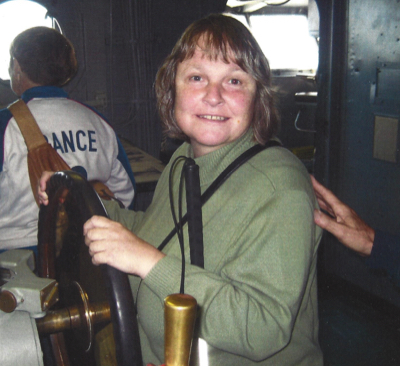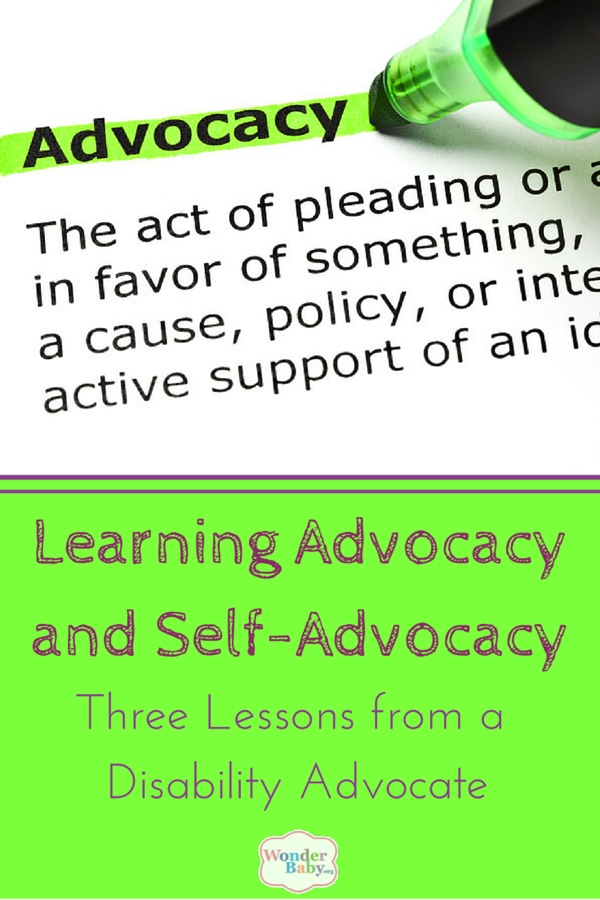Learning Advocacy and Self-Advocacy

By Marianne Haas
I have had to understand the concepts of advocacy and self advocacy from an early age. I was born almost totally blind and with some additional disabilities in Switzerland in a time when there were not many opportunities for people with visual impairments. Growing up, I struggled with many prejudices against people with disabilities, but I was still able to attend a regular Junior High School and High School and was fully included. I learned very quickly how to rely on myself and my family has always been there to support me.
After highschool I traveled to the United States and studied at Vassar College and Columbia University and became a Teacher of the Visually Impaired. I taught in several districts in California before settling down with my sighted life partner. He and I complement each other and enjoy life very much!
In both my personal and professional life, I have seen how parents of children with disabilities are often left to their own devices and struggle to get necessary services for their children. Using my own experiences in advocating for myself, I’ve been working with families to help them and their children navigate the educational and service systems. My strategies include three main points…

1. Knowledge is power
I have developed my own strategies to teach advocacy and self-advocacy. The first step to advocacy and self-advocacy is knowledge, particularly specific knowledge of the disability (the diagnosis, effects on every day life, causes, etc).
The next step in advocacy and self-advocacy is knowledge and understanding of available services. This is a much more difficult hurdle to clear as many parents are confronted with way too much information and very little explanation. There really are many services available to parents, but often school districts do not tell families about them, maybe because they don’t have those services available or maybe because they aren’t organized enough to relay the information. It is then up to the parents to find out themselves and ask other parents.
Having a support network of informed parents who can gain knowledge from each other is key!
2. Come to terms with your limits
Another question that families need to ask is, “What is important and realistic for my child?” Disabled people and their parents are often confronted with images and stories of overly successful people with disabilities and this can lead to either unrealistic aspirations or unnecessary negative feelings of inadequacy. An example of this might be, “Helen Keller went so far in life, why can’t you do the same?” Think about this for a minute. Why are people who are blind constantly being compared to (and being asked to do as well as) Helen Keller? How many sighted people are being told, “Einstein was a genius, why can’t you be another Einstein?”
You’ll do much better and be far more successful if you know what your child is realistically capable of and you advocate for the services to help attain that level of success.
3. State your needs
On the other hand, people can often underestimate the capabilities of people with disabilities, too. They may say, “Of course you cannot do this activity. I could not do this if I was blind!” A good advocate can help people formulate and teach them how to state their needs and wants. I’ve found that confronting the “elephant in the room” (namely, the visual impairment) is a good way to create healthy contacts. An example for this would be a blind job applicant talking about his/her skills to adapt to the job tasks in an interview, rather than trying to ignore the fact that they are blind and hope the question isn’t raised by the interviewer.
I hope some of these tips can help you advocate for yourself or your family! If you have any questions or need assistance please contact me. I’m here to help!
Marianne Haas lives in the San Francisco bay area and does tutoring and advocacy for people with disabilities. She’s also an employment counselor and job search assistance. If you are interested in her services, (in person, by telephone or on skype), please email her at: braillewoman@earthlink.net

Related Posts

Advocacy, Special Needs
Advocacy Strategies for Parents of Special Needs Children
Learn about effective advocacy strategies for parents of special needs children and discover how to ensure the best possible outcomes for your child.

Advocacy
How to Work with Difficult Doctors & Therapists
As the parent of a disabled child you probably have to meet with quite a few doctors and therapists. What can you do if you just don't agree with their...

Advocacy, Parenting
Family vs Ableism: What I’ve Learned As a Mother of a Child with a Disability
Is it more important to be worried about how you're presenting yourself and your family to the outside world and the wider disability community, or to focus on the needs...